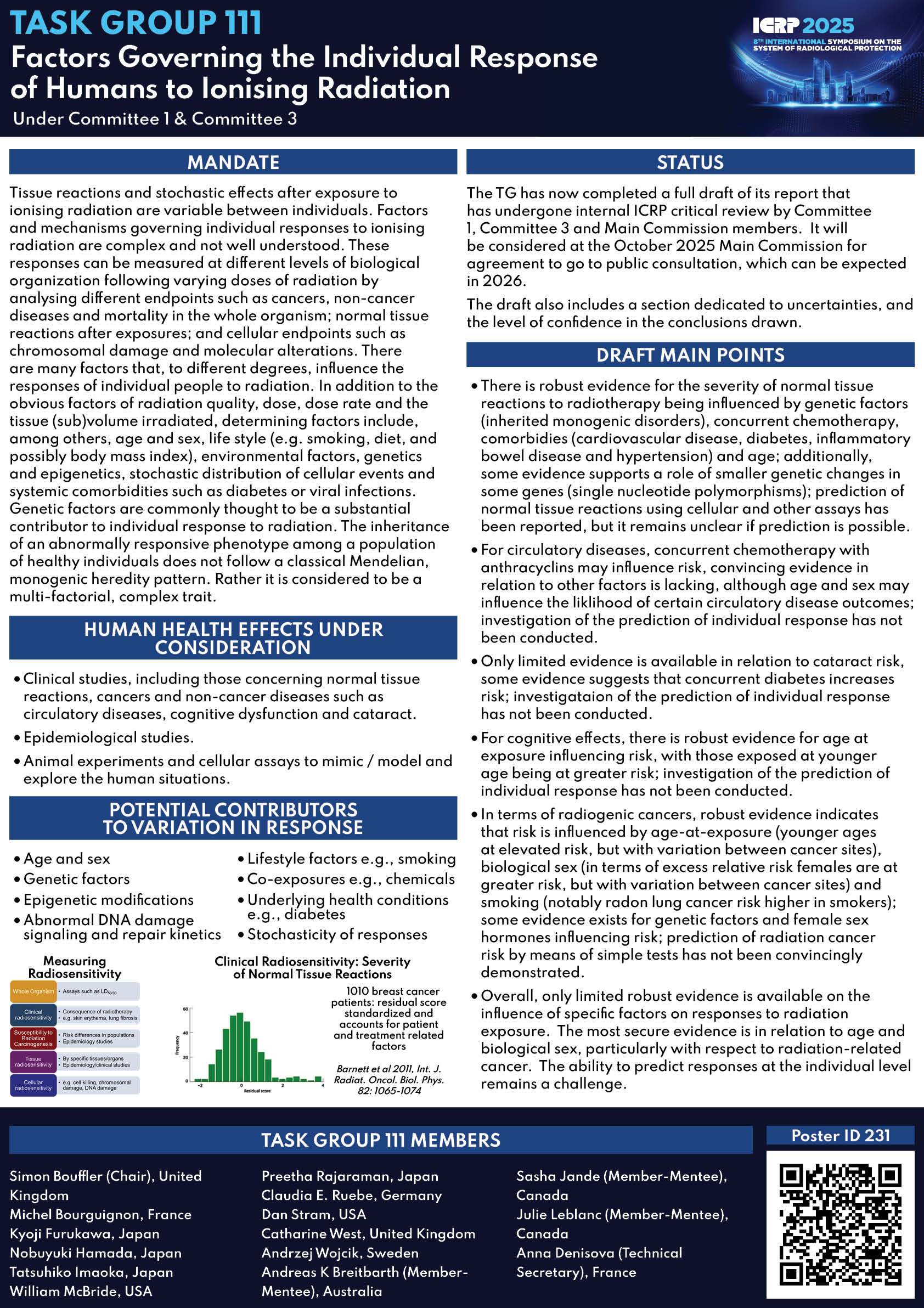Task Group 111
Factors Governing the Individual Response of Humans to Ionising Radiation
Under Committee 1 and Committee 3
Tissue reactions and stochastic effects after exposure to ionising radiation are variable between individuals. Factors and mechanisms governing individual responses to ionising radiation are complex and not well understood. These responses can be measured at different levels of biological organization following varying doses of radiation by analysing different endpoints such as cancers, non-cancer diseases and mortality in the whole organism; normal tissue reactions after exposures; and cellular endpoints such as chromosomal damage and molecular alterations. There are many factors that, to different degrees, influence the responses of individual people to radiation. In addition to the obvious factors of radiation quality, dose, dose rate and the tissue (sub)volume irradiated, determining factors include, among others, age and sex, life style (e.g. smoking, diet, and possibly body mass index), environmental factors, genetics and epigenetics, stochastic distribution of cellular events and systemic comorbidities such as diabetes or viral infections. Genetic factors are commonly thought to be a substantial contributor to individual response to radiation. The inheritance of an abnormally responsive phenotype among a population of healthy individuals does not follow a classical Mendelian, monogenic heredity pattern. Rather it is considered to be a multi-factorial, complex trait. The Task Group will develop a report for publication in the Annals of the ICRP that presents a review of the current science relevant to the topic of individual response to radiation.
TG111 is nearing completion of its work to produce a report on the scientific evidence relating to Factors Governing the Individual Response of Humans to Ionising Radiation. It is expected that the draft report will be ready for public consultation in 2025.
ICRP 2025 Poster
Papers
Progress of the work of the Task Group has been published:
| Simon Bouffler (Chair), Imperial College London, United Kingdom | ||
| Michel Bourguignon (Member), University Paris Saclay (UVSQ), France | ||
| Kyoji Furukawa (Member), Kurume University, Japan | ||
| Nobuyuki Hamada (Member), CRIEPI, Japan | ||
| Tatsuhiko Imaoka (Member), National Institutes for Quantum Science and Technology, Japan | ||
| William McBride (Member), University of California at Los Angels, USA | ||
| Preetha Rajaraman (Member), Radiation Effects Research Foundation, Japan | ||
| Claudia E. Ruebe (Member), Saarland University, Germany | ||
| Dan Stram (Member), University of Southern California, USA | ||
| Catharine West (Member), The University of Manchester, United Kingdom | ||
| Andrzej Wojcik (Member), Centre for Radiation Protection Research, Stockholm University, Sweden | ||
| Andreas K Breitbarth (Member-Mentee), Australia | ||
| Sasha Jande (Member-Mentee), Canada | ||
| Julie Leblanc (Member-Mentee), Canadian Nuclear Safety Commission, Canada | ||
| Anna Denisova (Technical Secretary), France |
